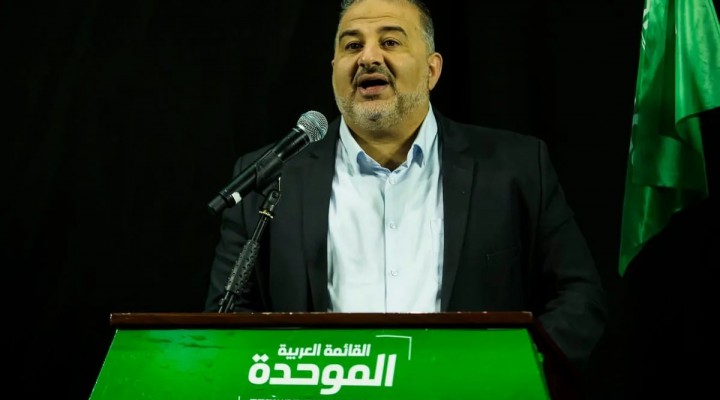Mansour Abbas lends support to Israel’s colonial narrative

Ra’am party leader Mansour Abbas has exposed how exploitative his role is within the coalition government formed by former Israeli Prime Minister Naftali Bennett. His political party, he claims, has “no influence” when it comes to Israel’s security concerns. “We have no influence on military operations. We are in the Knesset to work for Arab society and not to influence the foreign and security policy of the State of Israel,” Abbas told a Channel 12 reporter, while also stating that Ra’am is against the latest Israeli aggression on Gaza.
According to Abbas, the decision to not take any governmental positions, but to solely remain a part of the coalition, was to avoid becoming complicit in Israeli governmental decisions involving “war or any tough decision for the Arab citizens.” Speaking the language of any entity that avoids mentioning Israeli colonialism and colonial violence, however, is not part of Abbas’s equation.
Being part of a coalition government in which Abbas knows he heralds no influence to improve the rights of Palestinians, let alone the fact that he refuses to adamantly speak out against Israeli violence, is complicity in itself. Just because Abbas decided against a more active role does not exclude him from culpability. This is particularly the case when he has publicly uttered statements that do not dispute Israel’s self-styled apartheid, with complete disregard for the Palestinian people’s history, as well as Israel’s international law violations.
Palestinians have had their share of betrayal from their leaders. International impositions and illusions of pragmatism have contributed to their current predicament of not being able to articulate their political demands. Abbas has gone a step further in validating the Israeli narrative, particularly by falling for the colonial fragmentation of both Palestinian land and people.
By accepting Israel’s existence as a Jewish state, Abbas has implicitly accepted Israel’s colonial land theft, as well as refusing to recognise that Gaza’s refugee population is a direct reflection of the 1948 Nakba’s reality.
Additionally, Abbas’s continuous insistence that his role is to improve conditions for Palestinians in Israel plays directly into the division that Israel’s brand of colonialism has adopted to prevent the chances of Palestinian unity. The divide is most visible between Gaza and the occupied West Bank, where both Israel and the international community have differentiated between populations based on economic prospects. However, the reality is that Palestinians in Gaza and the occupied West Bank are oppressed in different ways. As a result, both populations have their own brand of anti-colonial struggle, which Israel and the international community prefer to keep separate. Meanwhile, they portray the occupied West Bank as more compliant, thus creating a justification for Israel’s periodic bombardments of Gaza, while Palestinians in Israel are barely spoken about.
Abbas has no excuse other than wanting to consolidate his status. To this effect, his previous statements have already done the job of endearing him to Israel’s politicians. For Palestinians, however, the narrative changes. Ra’am is contributing to the consequences of Israeli colonialism, with no recognition regarding Palestinians other than lip service to the war crimes Palestinians have endured – in this case, Palestinians in Gaza. Such influence is direct and damaging, regardless of how Abbas attempts justifications.
https://www.middleeastmonitor.com/20220815-mansour-abbas-lends-support-to-israels-colonial-narrative/
 TheAltWorld
TheAltWorld 
0 thoughts on “Mansour Abbas lends support to Israel’s colonial narrative”